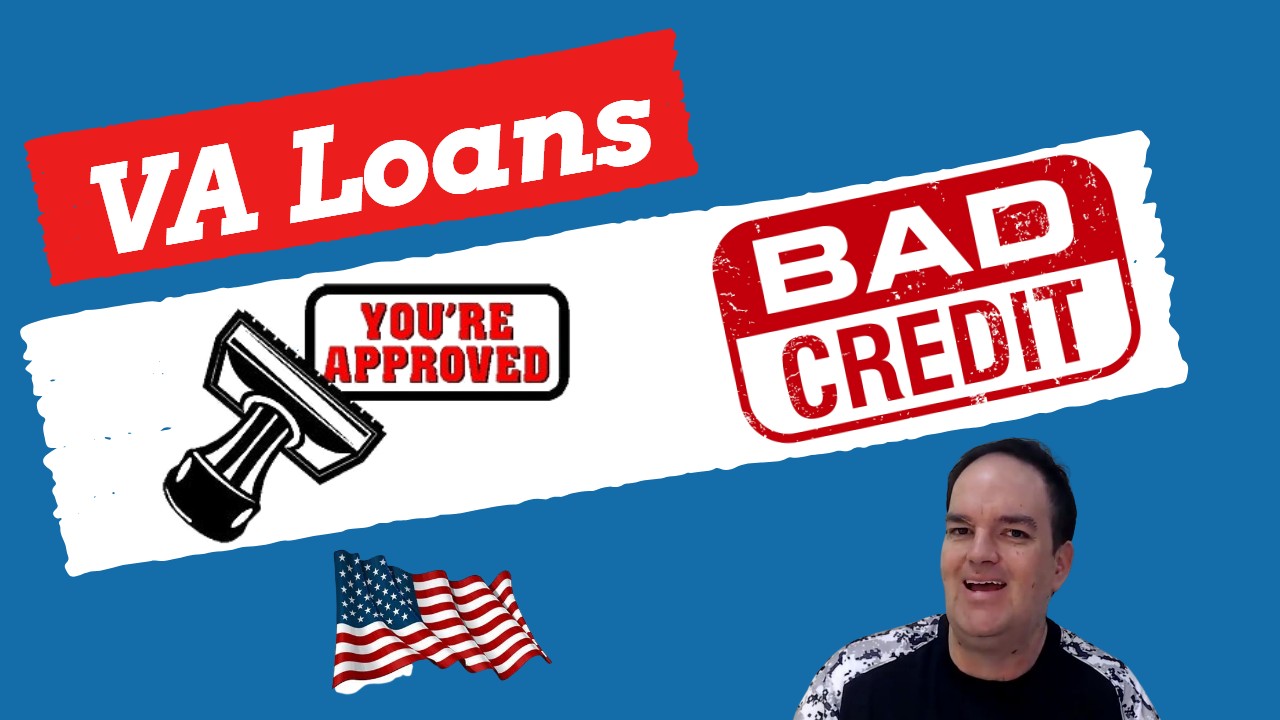

Finance
How To Get Loan With Bad Credit And No Job
Published: January 12, 2024
Learn how to get a loan with bad credit and no job. Get expert advice on financing options to secure funds, even in challenging financial situations.
(Many of the links in this article redirect to a specific reviewed product. Your purchase of these products through affiliate links helps to generate commission for LiveWell, at no extra cost. Learn more)
Table of Contents
Introduction
When it comes to seeking a loan, having bad credit and no job can pose significant challenges. Traditional lenders often hesitate to provide loans to individuals with a poor credit history or those who are currently unemployed. However, there are still options available to those in need of financial assistance.
Life circumstances can change unexpectedly, leaving us in a position where we need financial help despite our credit or employment situation. Whether you’re facing unexpected medical bills, need to cover essential expenses, or are looking to invest in a new opportunity, understanding how to get a loan with bad credit and no job can be invaluable.
In this article, we’ll explore the various options available for obtaining a loan under these circumstances. We’ll also provide tips on how to improve your credit score and increase your chances of finding employment, ultimately improving your overall financial prospects. So, let’s dive in and discover how you can navigate the challenges of obtaining a loan with bad credit and no job.
Understanding Bad Credit and Unemployment
Before delving into the options available for obtaining a loan with bad credit and no job, it’s essential to understand what exactly constitutes bad credit and how unemployment can impact your financial situation.
Bad credit refers to a low credit score or a history of late payments, defaults, or bankruptcies. Lenders use credit scores to assess a borrower’s creditworthiness and determine the risk involved in lending them money. A poor credit score can make it challenging to secure traditional loans from banks or financial institutions.
Unemployment, on the other hand, is the state of being without a job and a source of income. Unemployment can be a temporary setback due to job loss, or it may be a more prolonged period of job searching. Without a stable income, lenders are often reluctant to approve loans, as they consider the risk of repayment to be higher.
However, it’s important to note that having bad credit and no job doesn’t mean that you are entirely ineligible for obtaining a loan. There are alternative lenders and loan options specifically designed for individuals facing these circumstances.
Understanding the impact of bad credit and unemployment on your financial situation is crucial in finding the right loan options and knowing what steps you can take to improve your creditworthiness and increase your chances of finding employment.
Assessing Your Financial Situation
Before embarking on the journey of obtaining a loan with bad credit and no job, it’s essential to assess your financial situation thoroughly. Understanding your current financial standing will help you make informed decisions about the type of loan you should pursue and how much you can realistically borrow.
The first step in assessing your financial situation is to take a close look at your expenses and income. Calculate your monthly expenses, including rent or mortgage payments, utilities, groceries, transportation, and any other recurring bills. This will give you a clear picture of your financial obligations.
Next, examine your sources of income. Even if you’re currently unemployed, you may have other income streams, such as rental properties, investments, or government assistance. It’s important to account for all potential sources of income when evaluating your financial situation.
Once you have a comprehensive understanding of your financial standing, it’s crucial to consider your ability to repay a loan. Assessing this requires careful consideration of your current and future financial stability. Determine whether you have any savings or assets that can be used as collateral for a loan.
Additionally, evaluate your future employment prospects. Are you actively searching for a job? Do you have any leads or interviews lined up? Having a plan in place to secure employment can greatly increase your chances of obtaining a loan.
By carefully assessing your financial situation, you’ll be equipped with the necessary information to make informed decisions about the loan options available to you. You’ll also have a realistic understanding of your ability to repay the loan and the steps you need to take to improve your financial stability.
Exploring Loan Options Without a Job or Income
While traditional lenders may be hesitant to provide loans to individuals without a job or income, there are still alternative loan options available. These options cater specifically to those with bad credit or no job, offering a lifeline during challenging financial circumstances.
1. Personal Loans with Collateral: One option is to consider securing a personal loan with collateral. Collateral can be any valuable asset you own, such as a car, property, or valuable possessions. By offering collateral, you provide the lender with reassurance that they can recoup their losses if you default on the loan. Keep in mind that defaulting on a collateral-based loan can result in the loss of the asset you pledged.
2. Peer-to-Peer Lending: Peer-to-peer lending platforms connect borrowers directly with individual lenders. These platforms facilitate loans without the need for traditional financial institutions, providing more lenient criteria for loan approval. Peer-to-peer lending often allows for more flexible terms and interest rates as lenders have the freedom to set their own terms.
3. Payday Loans: Payday loans are short-term loans that typically come with high-interest rates and fees. These loans are designed for individuals who need immediate cash but have bad credit or no job. It’s important to approach payday loans with caution, as the high interest can result in a cycle of debt if not managed carefully.
4. Online Installment Loans: Online installment loans are another option worth exploring. These loans provide a fixed amount that is repaid in installments over a set period. While the interest rates may be higher due to the risk involved, online installment loans can offer more flexibility and convenience compared to traditional lenders.
5. Nonprofit and Community Organizations: Some local nonprofit organizations or community groups may offer financial assistance programs for individuals in need. These organizations may provide grants, low-interest loans, or even job placement services to help you get back on your feet.
Remember, when exploring loan options without a job or income, it’s crucial to carefully consider the terms, interest rates, and repayment plans of each option. Thoroughly review the loan agreement and ensure you have a realistic plan for repayment before proceeding.
By considering these alternative loan options, you can find a solution that meets your financial needs, even if you’re currently unemployed or have no income.
Securing a Loan with Bad Credit and No Job
Securing a loan with bad credit and no job may seem like a daunting task, but it’s not impossible. While it may require some extra effort and research, there are strategies you can employ to increase your chances of obtaining a loan.
1. Improve Your Credit Score: Before applying for a loan, take steps to improve your credit score. Start by obtaining a copy of your credit report and checking for any errors or discrepancies. Dispute any inaccuracies and work on paying off outstanding debts. Timely payments and reducing your credit utilization can boost your credit score over time.
2. Seek Co-Signers or Guarantors: A co-signer or a guarantor with stable employment and good credit can greatly improve your chances of getting approved for a loan. By having someone vouch for your ability to repay the loan, lenders may be more willing to lend to you despite your bad credit or unemployment status.
3. Provide Collateral or Assets: Offering collateral or assets can act as security for the lender. If you have valuable possessions or property, consider using them as collateral to secure a loan. However, be aware of the risks involved, as defaulting on the loan may result in the loss of the collateral.
4. Show Alternative Sources of Income: Even if you don’t have a traditional job, you may have alternative sources of income. This could include rental income, freelance work, or government assistance. Providing evidence of consistent income from these sources can demonstrate your ability to repay the loan.
5. Build a Strong Loan Application: When applying for a loan, focus on presenting a strong loan application. Prepare a detailed budget, highlighting how you will manage loan repayments. Include any relevant supporting documents, such as bank statements or proof of income. A well-prepared application can make a positive impression on lenders.
It’s crucial to note that while these strategies can improve your chances, it’s essential to align your loan expectations with your financial capabilities. Be realistic about the loan amount you can afford and prioritize responsible borrowing.
Lastly, be cautious of predatory lenders who may take advantage of individuals in vulnerable financial situations. Do thorough research, read reviews, and ensure the lender is reputable before moving forward with any loan agreement.
By implementing these strategies, you can increase your chances of securing a loan, even with bad credit and no job. Remember to be proactive, patient, and diligent in your efforts to find the right loan option that suits your needs.
Alternative Methods to Secure Funds
Securing a loan with bad credit and no job may not always be the ideal solution for everyone. In such cases, exploring alternative methods to secure funds can be beneficial. These options may provide the financial support you need without the constraints or potential drawbacks of a loan.
1. Borrow from Friends or Family: Consider reaching out to friends or family members who may be willing to lend you the money you need. This can be a more flexible, informal arrangement that doesn’t necessarily require a credit check or employment verification. However, be sure to approach this option responsibly and set clear terms for repayment to avoid straining relationships.
2. Use Your Savings: If you have any savings or an emergency fund, it may be wise to tap into those resources to meet your immediate financial needs. While this may not be a viable option for everyone, it can help bridge the gap until you secure employment or stabilize your financial situation.
3. Explore Crowdfunding or Grant Opportunities: Crowdfunding platforms allow you to raise funds for a specific cause or project. If you have a compelling story or a unique idea, crowdfunding can be a viable option to generate financial support. Additionally, there may be grant programs available through non-profit organizations or government entities that provide financial assistance to individuals in need.
4. Sell Assets or Unwanted Items: Consider selling any assets or possessions that you no longer need or use. This can include electronics, jewelry, furniture, or even a vehicle. Online marketplaces and local classifieds can provide a platform to sell these items quickly and generate some much-needed cash.
5. Seek Part-Time or Freelance Work: While not necessarily a method of securing funds directly, seeking part-time or freelance work can help generate income to cover expenses and reduce the need for external financial support. Platforms like freelancing websites or gig economy apps offer flexible work opportunities that can provide a steady income stream.
Exploring these alternative methods can offer creative and efficient ways to secure funds without relying solely on loans. Consider your personal circumstances and choose the option that best suits your needs and comfort level.
Remember to approach any financial arrangement responsibly, communicate clearly with involved parties, and prioritize a plan to rebuild your financial stability for the long term.
Tips for Improving Your Credit Score and Employment Prospects
Improving your credit score and employment prospects is essential for long-term financial stability. By taking proactive steps in these areas, you can increase your borrowing options and enhance your overall financial well-being. Here are some practical tips to help you along the way:
1. Pay Bills on Time: Consistently paying your bills on time is one of the most effective ways to improve your credit score. Set reminders or automate your payments to ensure they are made promptly. Over time, this will demonstrate your responsible financial behavior to lenders.
2. Reduce Debt: Work on reducing your existing debt, particularly high-interest credit card debt. Utilize strategies like the debt avalanche or debt snowball methods to efficiently pay off your balances. Lowering your debt utilization ratio can significantly improve your credit score.
3. Monitor Your Credit Report: Regularly check your credit report for any errors or inconsistencies. Dispute any inaccuracies and work towards resolving them with the credit reporting agencies. Keeping a close eye on your credit report allows you to address any issues promptly.
4. Use Credit Wisely: Use credit cards sparingly and only make purchases you can comfortably repay. Avoid maxing out your credit limits and aim to keep your credit utilization below 30%. Responsible credit usage demonstrates good financial management to potential lenders.
5. Build a Positive Credit History: If you have little to no credit history, consider obtaining a secured credit card or becoming an authorized user on someone else’s credit card. Making timely payments and building a positive credit history can help improve your credit score over time.
6. Enhance Your Job Prospects: Invest time in improving your employability. Update your resume, acquire new skills through online courses or certifications, and network within your industry. Consider volunteering or taking on freelance projects to gain experience and demonstrate your commitment to continuous professional growth.
7. Develop a Strong Professional Network: Building connections within your desired field can lead to job opportunities and referrals. Attend industry events, join professional associations, and engage with online networking platforms to expand your professional network.
8. Tailor Your Job Applications: Customize your job applications and resumes to highlight your relevant skills and experience for each position. Research the companies you apply to and showcase how your qualifications align with their needs. Personalizing your applications can make a significant impact and increase your chances of being considered.
9. Seek Professional Guidance: If needed, seek guidance from credit counseling agencies or employment centers. These organizations can provide tailored advice and support on improving your credit score and finding employment opportunities.
Remember that improving your credit score and employment prospects takes time and consistent effort. Be patient, stay motivated, and celebrate small victories along the way. By implementing these tips, you’ll be taking significant steps towards a brighter financial future.
Conclusion
Navigating the challenges of obtaining a loan with bad credit and no job may feel overwhelming, but it’s important to remember that there are still options available to you. By understanding your financial situation, exploring alternative loan options, and implementing strategies to improve your credit score and employment prospects, you can increase your chances of securing the funds you need.
Assessing your financial situation provides a solid foundation for making informed decisions about the loan options available to you. By understanding your income, expenses, and potential sources of collateral or alternative income, you can determine the most suitable path forward.
Exploring loan options specifically designed for individuals with bad credit and no job can open up new opportunities. From personal loans with collateral to peer-to-peer lending and payday loans, each option offers its own set of considerations and requirements.
In addition to loans, alternative methods such as borrowing from friends or family, using savings, or exploring crowdfunding can provide the financial support you need without the constraints of traditional borrowing.
Improving your credit score and employment prospects is crucial for long-term financial stability. Utilize strategies such as paying bills on time, reducing debt, monitoring your credit report, using credit wisely, and building a positive credit history to enhance your creditworthiness.
Enhancing your job prospects through resume building, skills development, networking, and tailored job applications can increase your chances of finding employment and improving your overall financial situation.
In conclusion, while obtaining a loan with bad credit and no job may present challenges, there are solutions available. By taking a proactive approach, utilizing alternative methods, and focusing on improving your creditworthiness and employability, you can navigate the obstacles and work towards a stronger financial future.
Remember to approach any financial decision with caution, thoroughly research your options, and seek professional guidance if needed. With determination, patience, and the right strategies, you can overcome the hurdles and achieve your financial goals.














